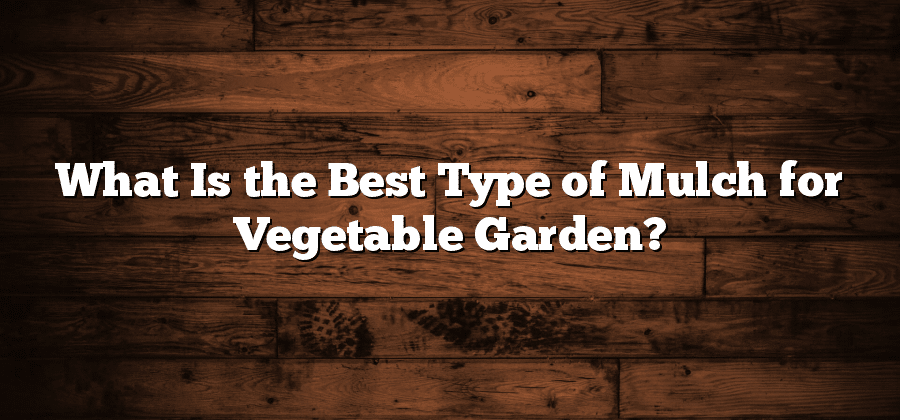Benefits of Mulching in Vegetable Gardens
Mulching is an essential practice in vegetable gardening that offers numerous benefits. One of the primary advantages of mulching is its ability to conserve soil moisture. By adding a layer of mulch around the base of vegetable plants, evaporation is significantly reduced, and water is retained in the soil for a longer period. This not only helps to conserve water, but it also reduces the need for frequent watering, saving both time and effort. In addition to conserving moisture, mulching also helps to regulate soil temperature, keeping it cooler in hot summer months and warmer during colder periods. This creates an optimal environment for vegetable growth and promotes healthier plants.
Another benefit of mulching in vegetable gardens is weed suppression. By placing a thick layer of organic or inorganic mulch on the soil surface, sunlight is blocked, preventing weed seeds from germinating and breaking through the soil. This reduces the competition for nutrients and space between the vegetable plants and weeds, allowing the vegetables to thrive without the interference of unwanted plants. Not only does this save time and effort spent on tedious weeding, but it also reduces the need for herbicides, making mulching a more environmentally friendly option.
Different Types of Mulch for Vegetable Gardens
There are several different types of mulch that can be used in vegetable gardens, each with its own unique benefits and features. One popular option is straw mulch, which is made from the stems of grains such as wheat or oats. Straw mulch helps to retain moisture in the soil, prevent weed growth, and regulate soil temperature. It also breaks down over time, adding organic matter and nutrients to the soil.
Another common type of mulch is wood chips or bark mulch. This type of mulch is made from shredded or chipped tree bark, branches, or logs. Wood chips and bark mulch provide excellent weed suppression, moisture retention, and soil temperature regulation. They also break down slowly, adding organic matter to the soil and improving its fertility over time.
Both straw mulch and wood chips or bark mulch are widely available and relatively inexpensive options for vegetable gardens. Other types of mulch, such as grass clippings, shredded leaves, or even newspaper, can also be used effectively. When choosing the right mulch for your vegetable garden, consider factors such as cost, availability, appearance, and the specific needs of your plants.
Factors to Consider When Choosing Mulch for Vegetable Gardens
When it comes to choosing mulch for your vegetable garden, there are several important factors to consider. First and foremost, you need to think about the specific needs of your plants. Different types of vegetables thrive in different conditions, so it’s crucial to select a mulch that will provide the right environment for growth. For example, some plants prefer a more acidic soil, while others require a higher level of moisture retention. By understanding the individual requirements of your crops, you can choose a mulch that will help create an optimal growing environment.
Another factor to consider is the availability and cost of the mulch. Some mulch options, such as straw or leaves, can be easily obtained for free or at a low cost. Others, like wood chips or decorative stones, may come with a higher price tag. Additionally, consider the availability of the specific mulch in your area. It’s important to choose a mulch that is readily accessible to ensure you can maintain your garden’s mulch layer throughout the growing season. By considering the cost and availability, you can select a mulch that fits your budget and logistical constraints.
Organic Mulch Options for Vegetable Gardens
Using organic mulch in your vegetable garden can provide numerous benefits, both for the health of your plants and for the overall condition of your garden. One popular option for organic mulch is straw. Straw is easy to obtain and spread, and it helps to retain moisture in the soil while also suppressing weed growth. Additionally, as straw breaks down over time, it contributes nutrients back into the soil, improving its fertility.
Another organic mulch option is compost. Compost is rich in nutrients and can help to improve soil structure and fertility. By spreading a layer of compost over your vegetable garden, you can enhance the soil’s ability to retain moisture, suppress weeds, and promote healthy plant growth. Additionally, compost provides a slow release of nutrients, ensuring that your vegetables receive the necessary nourishment throughout their growth cycle.
Inorganic Mulch Options for Vegetable Gardens
Using inorganic mulch in vegetable gardens can offer a range of benefits. One popular option is plastic mulch, which helps to control weeds, conserve moisture, and increase soil temperature. Plastic mulch comes in various colors, with black being the most common to promote heat absorption. It is essential to properly secure the plastic mulch to the ground to prevent it from being blown away by wind or displaced by heavy rainfall. Another inorganic mulch option is landscape fabric, which is typically made from woven polypropylene. This material allows air and moisture to pass through while blocking the growth of weeds. Landscape fabric is usually available in rolls and can be easily cut and shaped to fit the desired garden area.
In addition to plastic mulch and landscape fabric, another inorganic mulch option for vegetable gardens is gravel or stone. This type of mulch provides excellent weed control and can also help in retaining soil moisture. Gravel or stone mulch comes in different sizes and colors, allowing gardeners to choose the option that complements the overall aesthetics of their garden. However, it is important to note that gravel or stone mulch can affect soil temperature, so it may not be suitable for all types of vegetables. The installation process involves spreading a layer of gravel or stone evenly over the desired garden area, ensuring that it is well-drained and not too deep to suffocate the plants.






